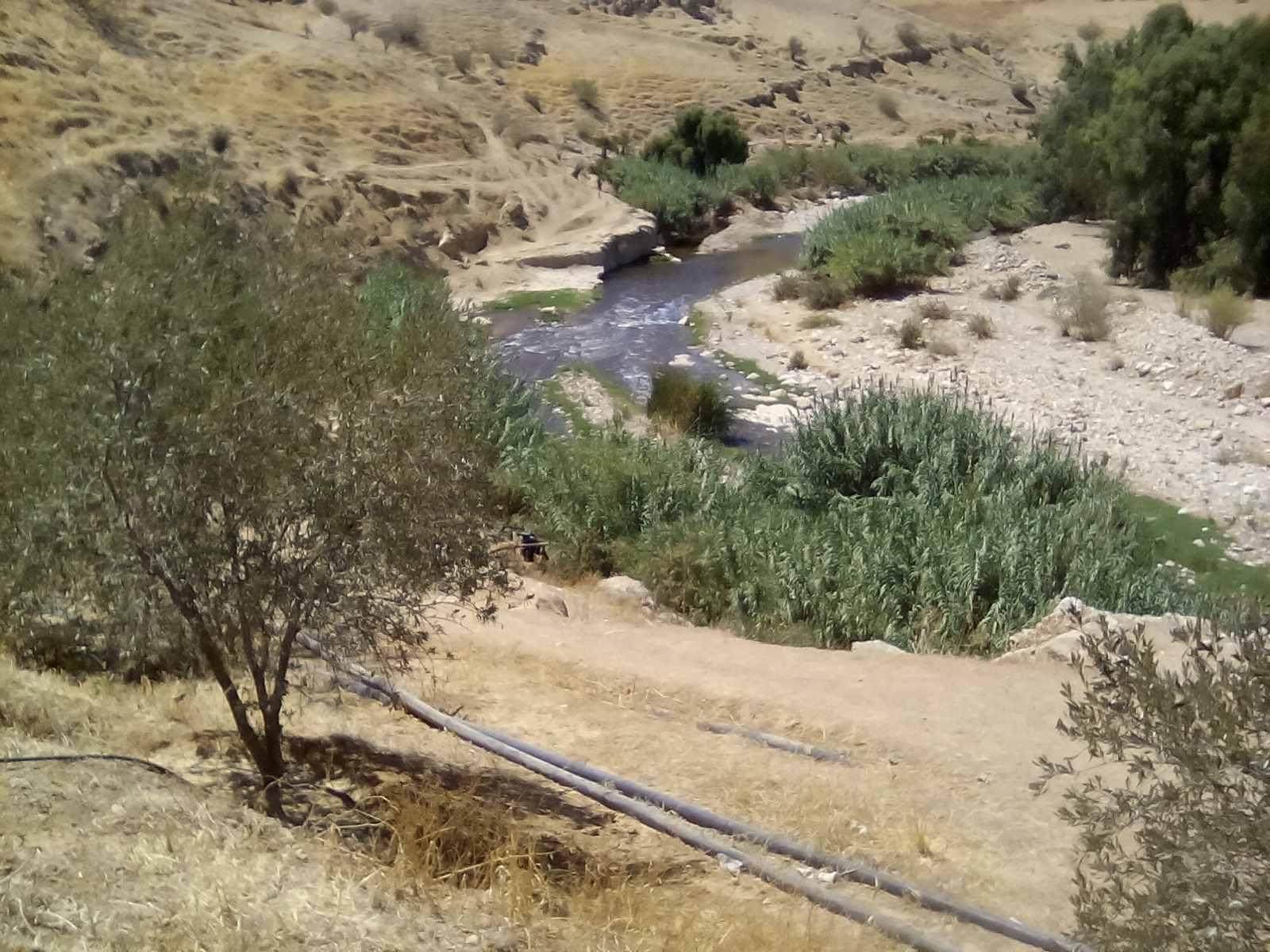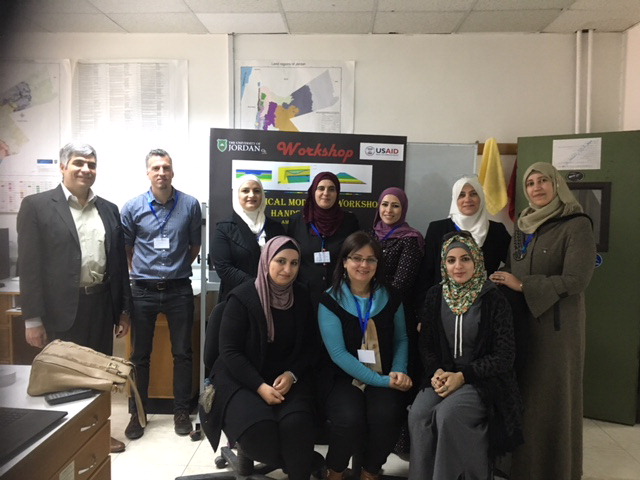|
Cycle 4 (2015 Deadline)
Assessment of preferential subsurface flow and transport in soils near Zarqa river basin
PI: Michel Rahbeh (m.rahbeh@ju.edu.jo), University of Jordan
U.S. Partner: Raghavan Srinivasan, Texas A&M University
Project dates: October 2015 - August 2018
Project Overview
 | | Subsection of the upper Zarqa river reach (photo courtesy of Dr. Rahbeh) |
Treated wastewater has become a major resource for agriculture in Jordan due to the overall scarcity of water. However, irrigation with treated wastewater increases the leaching potential of pesticides and fertilizers, in addition to the heavy metals already present in irrigation wastewater. Soil has always been viewed as the sieve that separates the surface from the subsurface in that it protects the vulnerable groundwater from organic and inorganic contaminants. The soil can retard the downward movement of contaminants, and the indigenous microorganisms concentrated in the first meter of the soil profile can assimilate the inorganic and degrade the organic contaminates. However, various factors associated with the chemical composition and texture of the soil can affect the downward flow of water. Water can also flow preferentially through macropores created by the activity of earthworms and plant roots, cracks and fissures in shrinking clay soils, and pathways formed due to subsurface erosion (Hillel 1998).
The researchers in this project will study the contamination of surface and ground water via subsurface preferential routes. Their findings should be useful to decision makers (for example, the Jordanian Ministry of Water and Irrigation) in efforts to protect the ground and surface water within the study area from pollution. The study results could also facilitate the adoption of new irrigation methods and practices and reconsideration of irrigation water quality. The ultimate goal is providing accountable and sustainable management options for the use of wastewater in irrigation and therefore maintaining the long-term sustainability of surface and ground water in the study area. Besides its research goals and potential policy impacts, the project also involves significant capacity building aspects. New advanced laboratory equipment will be purchased to augment the infrastructure at the University of Jordan and students and researchers will be trained in its use.These are skills in high demand, which should help students find employment at universities, governmental research institutes, and private companies engaged in research and development.
Final Summary of Project Activities
This was the first research in Jordan that considered preferential flow of irrigation water in soils, and Dr. Rahbeh and his team shared their findings with the Jordanian Ministry of Water and Irrigation, as well as with farmers, in an effort to protect the ground and surface water within the study area from pollution. The research team undertook several types of experiments to quantify contamination of the surface and ground water and soil preferential flow, including tension infiltrometer readings along sites on the river, dye tracer field experiments and lab tests of soil samples for transport of bromide, nitrate, dimethoate and lead. The researchers also compared two models – the Soil Water Assessment Tool (SWAT) and HYDRUS — to evaluate preferential flows on a small selection of the study area.
Three female laboratory assistants received training as part of the grant and two assistants obtained full-time employment using the skills learned. Graduate students also attended a workshop on the HYDRUS model, and one female Ph.D. student attended advanced training at the U.S. partner institution, Texas A&M, and received feedback on her research proposal.
The PI presented results at two international conferences: the Soil Water Assessment Tool International Conference held in Warsaw, and at the 18th International Conference on Diffuse Pollution and Eutrophication in Los Angeles. As a result of the PEER grant, the PI was appointed the head of the Land, Water, and Environment Department at the University of Jordan. Laboratory equipment purchased as part of the PEER grant will continue to be used for further research and training for graduate students.
Publications
Michel Rahbeh, Raghavan Srinivasan, Rabi Mohtar. 2019. Numerical and conceptual evaluation of preferential flow in Zarqa River Basin, Jordan. Ecohydrology & Hydrobiology 19(2): 224-237. https://doi.org/10.1016/j.ecohyd.2019.04.001
Michel Rahbeh. 2019. Characterization of preferential flow in soils near Zarqa river (Jordan) using in situ tension infiltrometer measurements. PeerJ 7: e8057. https://doi.org/10.7717/peerj.8057
Michel Rahbeh. 2017. Assessment of preferential subsurface flow and transport in soils near Zarqa river basin, The 18th International Conference on Diffuse Pollution and Eutrophication Los Angeles, USA, August 13-17, 2017
 | | Training workshop on HYDRUS model [Photo courtesy of Prof. Rahbeh] |
| 




